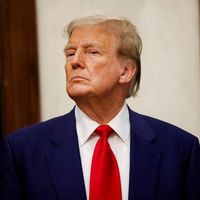Foreign minister calls Iran-E3 status quo lose-lose, urges nuclear diplomacy
Iranian Foreign Minister Abbas Araghchi has offered a path to diplomacy with the E3 nations -- France, Britain, and Germany, acknowledging that relations are currently strained and proposing cooperation on the nuclear issue.
“Iran's relations with the E3 have experienced ups and downs in recent history. Like it or not, they are currently down. Why? Each side has its own narrative. To me, placing blame is a futile exercise. What matters is that the status quo is lose-lose," he wrote on X on Thursday.
Araghchi said he offered dialogue during a meeting with E3 foreign ministers in New York last September, suggesting cooperation on various issues beyond just the nuclear file. He lamented that the European nations declined, saying, "They unfortunately chose the hard way."
The foreign minister pointed to his recent consultations in Moscow and Beijing and expressed readiness to visit Paris, Berlin, and London.
He said that he was prepared to undertake these visits before Iran started its dialogue with the United States, but the E3 opted against it.
"The ball is now in the E3's court," he added. "They have an opportunity to do away with the grip of Special Interest groups and forge a different path," he said, warning that the actions taken at this critical juncture are likely to define the foreseeable future of their relationship.
Araghchi's overture comes as Iran is in the midst of indirect talks with the US over its nuclear program.
As parties to the 2015 nuclear deal, which expires on October 18, Germany, Britain, and France can trigger pre-deal international sanctions if they deem Iran non-compliant before that date.
The sanctions that were lifted under that agreement are due to "snap back" into place 30 days after the mechanism is triggered unless the council's five permanent members unanimously vote to keep the sanctions lifted.
Following the start of US-Iran talks in Oman earlier this month, Iran's Tehran Times reported that Tehran asked Washington to prevent European states from triggering the mechanism.
"(Iran) told the US on Saturday that it would be on Washington to make sure snap back does not get activated," the paper wrote, without specifying its sources.







